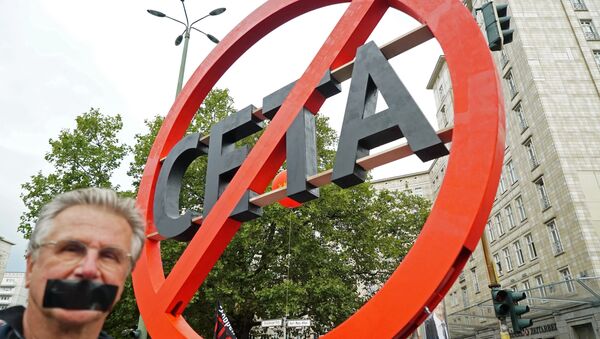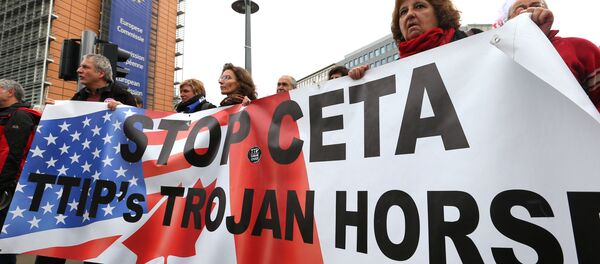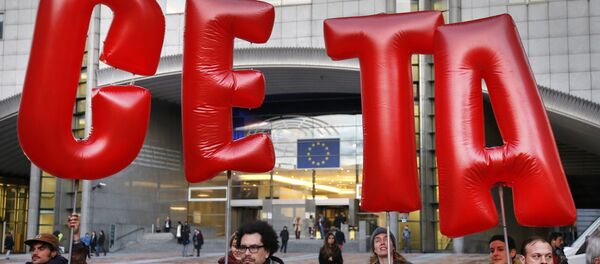Previously, all 28 EU governments supported the deal except for Wallonia, which has a veto power. On Thursday, Belgian Prime Minister Charles Michel confirmed that leaders of five regional parliaments had reached a deal with the government over CETA.
"We have finally found an agreement among the Belgians that will now be submitted to European institutions and our European partners," said Paul Magnette, head of Wallonia’s government.
Finally, the parties agreed a four-page document containing guarantees that the Belgian federal government will assess the social and economic impact of CETA.
The fact that Wallonia finally endorsed the agreement is not positive since the CETA agreement in its current form is unacceptable, said Jean-Frederic Poisson, a French presidential candidate and leader of the Christian Democratic Party.
"It’s all about money and trade power. Trade is considered the dominant form of any social interactions. But it is just an illusion that the simple fact of trade ties could lead to peace and partnership between nations," Poisson said in an interview with Sputnik France.
According to the politician, CETA presumed a mechanism that would undermine the "existing norms and social protection mechanisms" in European countries.
"I regret that finally Belgium has opened the way for the deal. The deal will lead to nowhere. I don’t want trade to play the dominant role in our society," he added.
"If elected I will immediately withdraw the EU mandate for negotiations from the French side. I think that the negotiations should be totally revised. The agreement should not be all about free trade," he said.
Jean-Didier Berthault, national secretary of The Republicans party, suggested that Brussels and Belgium agreed compensation over the situation with Wallonia.
"I think that Belgium will receive some compensation. They had talks about the problems in Wallonia’s farming industry. I think they’ve reached a compromise on the issue," he told Sputnik France.
Poisson and Berthault recently visited Moscow to meet with representatives of the French community prior to the presidential election in France.
The EU-Canada free trade deal has been criticized by European politicians, businessmen and public activists. Opponents fear it would undermine standards and regulations on environmental protection, health, safety and workers' rights.
Those criticizing the deal are concerned that the CETA deal includes some of the provisions from the controversial Transatlantic Trade and Investment Partnership (TTIP) deal between the United States and the EU.





